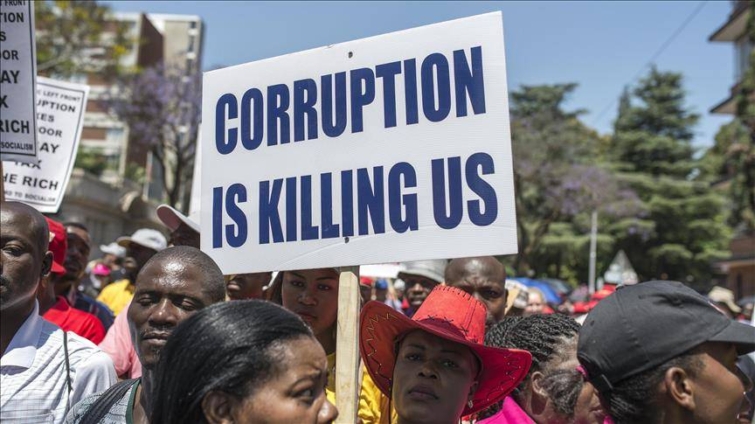In Ghana's political landscape, accusations of corruption have often overshadowed the nation's potential for economic growth. The perpetual cycle of one party accusing the other of corruption, only to engage in similar practices once in power, has hindered progress and eroded public trust. It's time for a paradigm shift—a call for structured collaboration between the two major political parties to prioritise the nation's interests over partisan gains.
Ghana stands at a critical juncture, poised to unleash its economic potential and elevate its status on the global stage. With concerted efforts, the economy has the capacity to soar to a deserved £400 billion valuation with a modest tax-to-GDP ratio of 15%, realising £60 billion yearly for socioeconomic development. However, achieving this ambitious goal requires common sense, competence, and commitment from both sides of the political spectrum.
Corruption, like cancer, eats away at the fabric of society, siphoning off valuable resources meant for development. It undermines public confidence, deters foreign investment, and perpetuates inequality. Every government since the inception of the fourth republic has had its share of blame for corruption. None can be excused, and it's time for reflection and collaboration. Instead of engaging in a blame game, it's time for the political elite to acknowledge the pervasive nature of corruption and the lesser prioritisation of competence and work together to root it out.
Competence must become the hallmark of governance, where only the best brains are invited to occupy public office instead of the loudest political people and cronies who have nothing to offer.
This entails prioritising meritocracy over political patronage and ensuring that individuals appointed to key positions possess the necessary expertise and qualifications to effectively serve the public interest.
Citizens deserve leaders who are not only competent but also dedicated to serving the nation with integrity and diligence. By promoting competence in governance, Ghana can foster sustainable development and regain the trust of its citizens, paving the way for a brighter future for all.
Moreover, a bipartisan approach to economic development is paramount. Instead of viewing economic policies through a partisan lens, both parties should collaborate on a long-term vision for sustainable growth. This includes investing in infrastructure, education, healthcare, and technology to create an enabling environment for businesses to thrive.
Education and awareness are also crucial components of this endeavour. Citizens must be empowered with the knowledge and tools to identify corruption, report it, and demand accountability from their leaders. Civil society organisations, the media, and academia play a pivotal role in fostering a culture of transparency and integrity.
Finally, political will is indispensable. Leaders must prioritise the national interest above personal or party interests. They must demonstrate a genuine commitment to fighting corruption and advancing the country's economic agenda, regardless of who holds power.
The time has come for Ghana's political elite to rise above partisan bickering and embrace a spirit of cooperation for the greater good. By committing to curbing corruption and expanding the economy, Ghana can realise its full potential and emerge as a beacon of hope and prosperity in Africa. The choice is clear: engage in petty politics or embrace bipartisanship for the betterment of all Ghanaians. The future of our nation depends on the decisions we make today.
Latest Stories
-
Tens of thousands without water in Mayotte as curfew brought in
11 minutes -
ORAL: We won’t witch-hunt, we’ll focus on transparency, not revenge – Ablakwa
34 minutes -
Attempted robbery: Accused claims he carried cutlass for protection
51 minutes -
Embattled Liberian speaker questioned by police over parliament fire
3 hours -
‘I won’t be a judge in my own court; ORAL is about protecting public purse’ – Ablakwa
3 hours -
Bawumia joins thousands in Kumasi for burial prayers for Ashanti Regional Imam
3 hours -
Blue Gold Bogoso Prestea Limited challenges government actions in court
4 hours -
Verdicts due for 51 men in Pelicot mass rape trial that shook France
4 hours -
Syria not a threat to world, rebel leader Ahmed al-Sharaa tells BBC
4 hours -
Patrick Atangana Fouda: ‘A hero of the fight against HIV leaves us’
4 hours -
Trinity Oil MD Gabriel Kumi elected Board Chairman of Chamber of Oil Marketing Companies
5 hours -
ORAL campaign key to NDC’s election victory – North America Dema Naa
5 hours -
US Supreme Court to hear TikTok challenge to potential ban
5 hours -
Amazon faces US strike threat ahead of Christmas
6 hours -
Jaguar Land Rover electric car whistleblower sacked
6 hours

